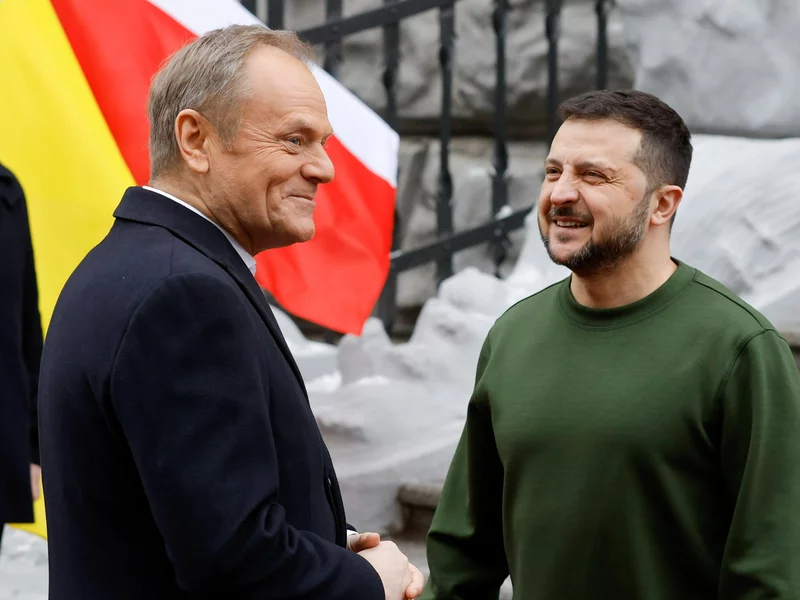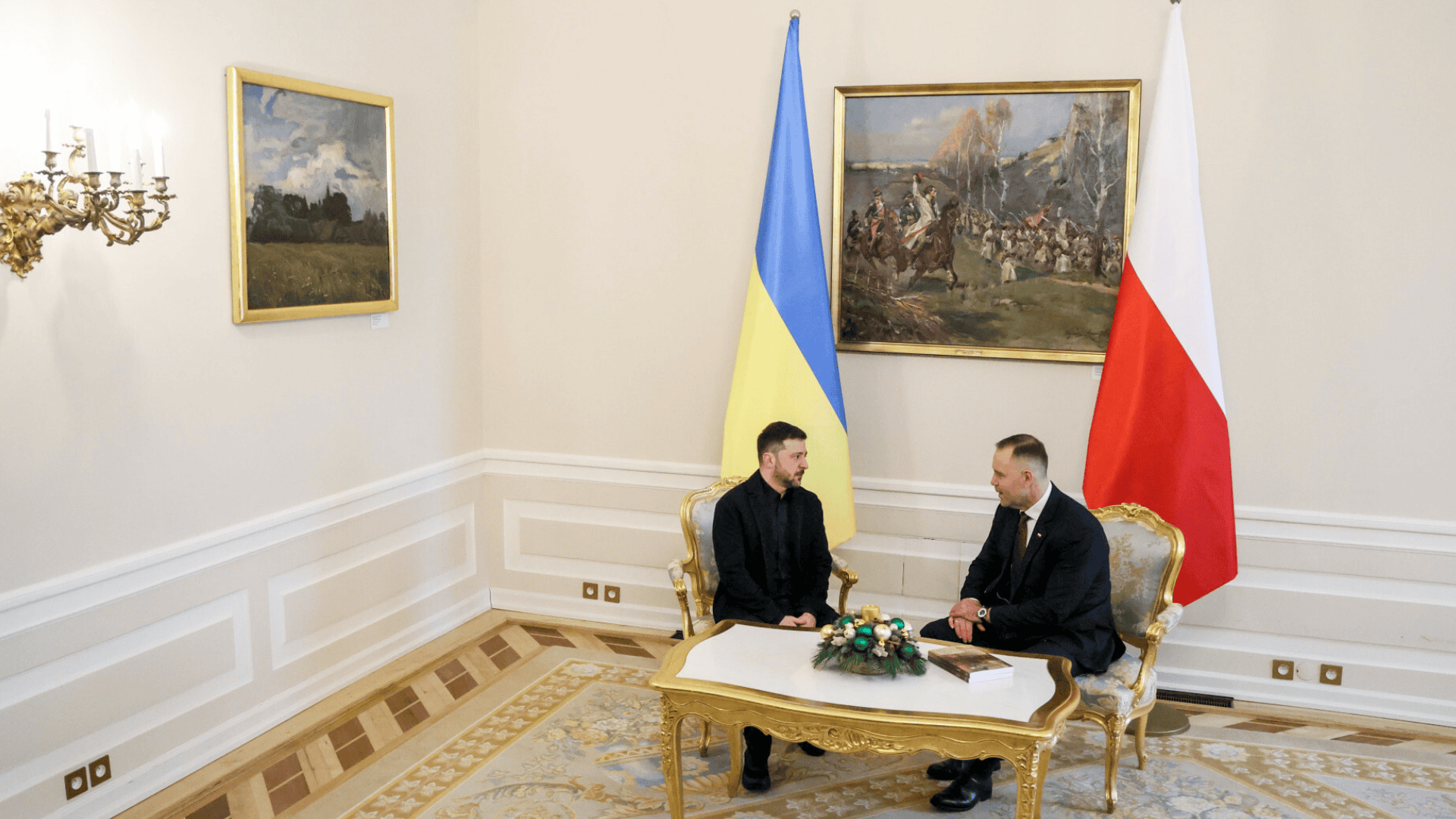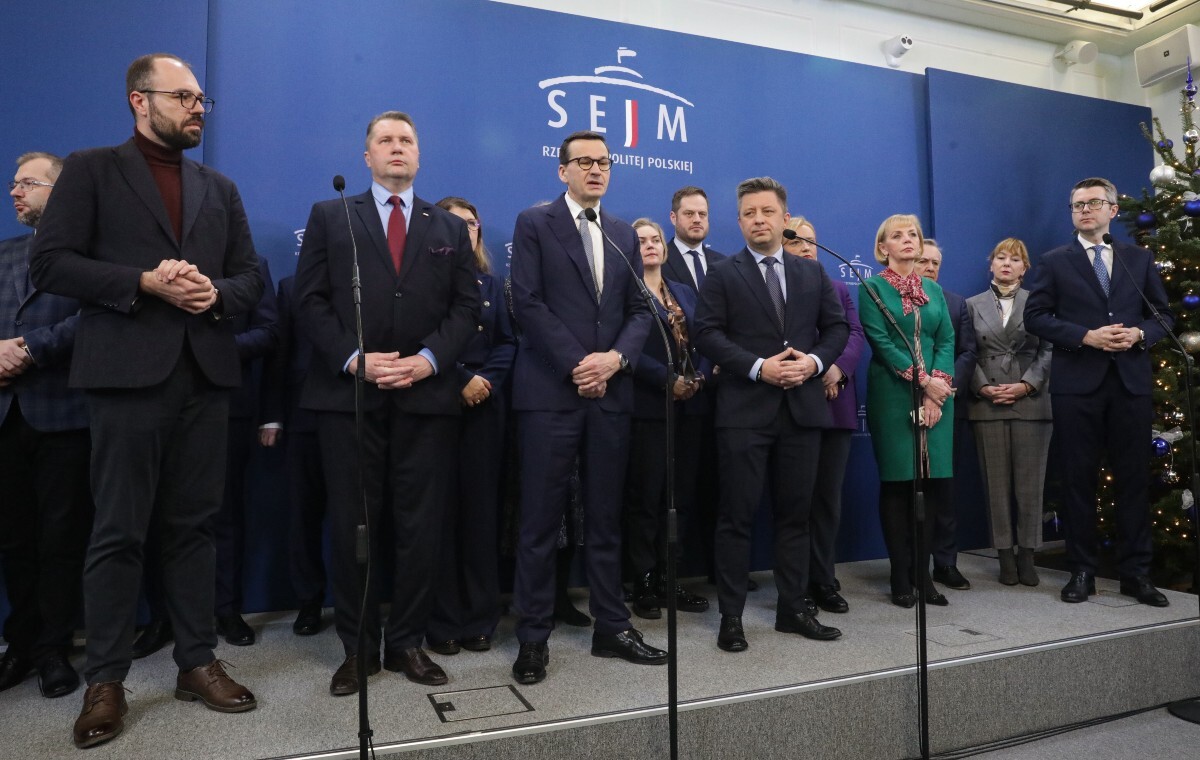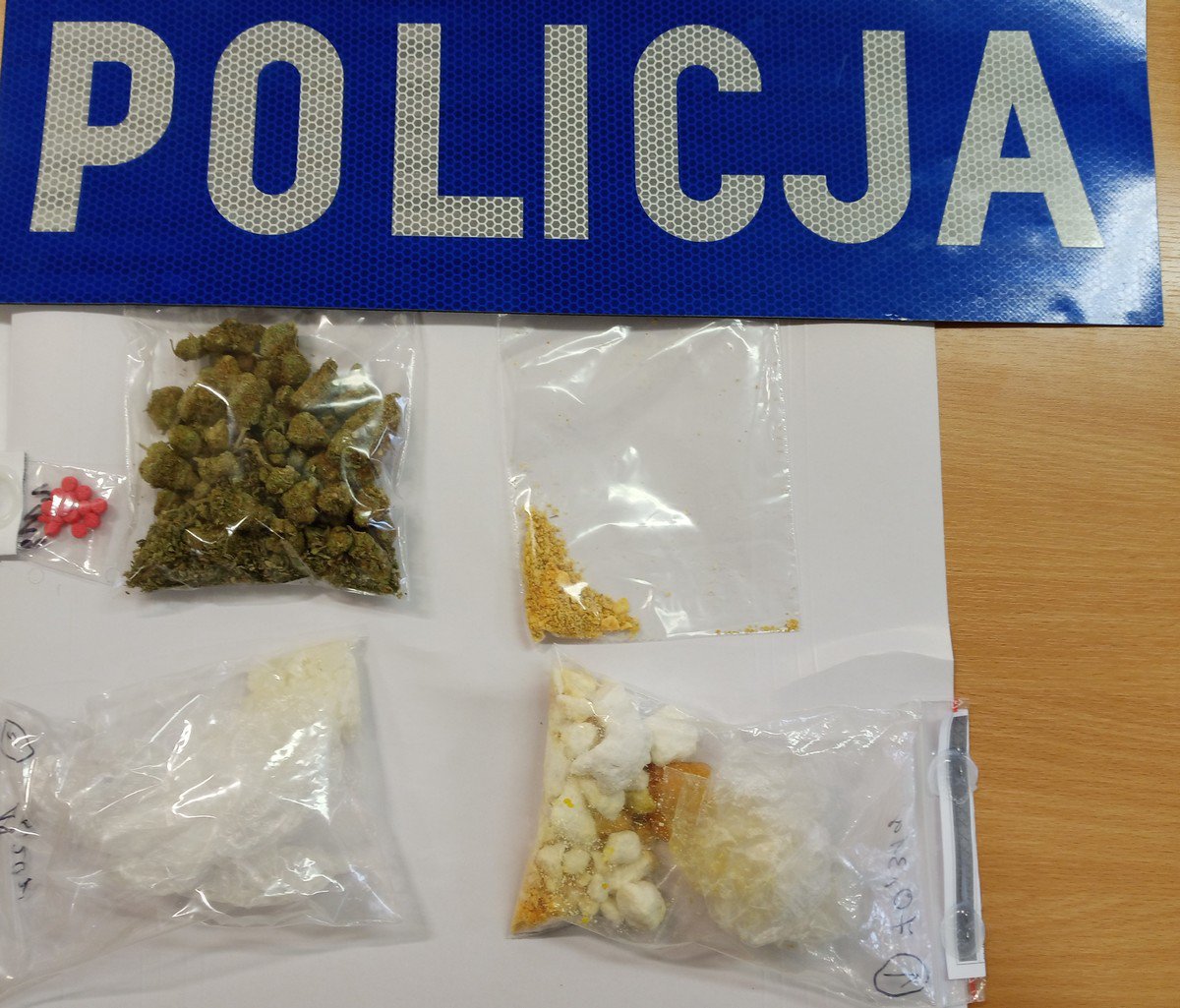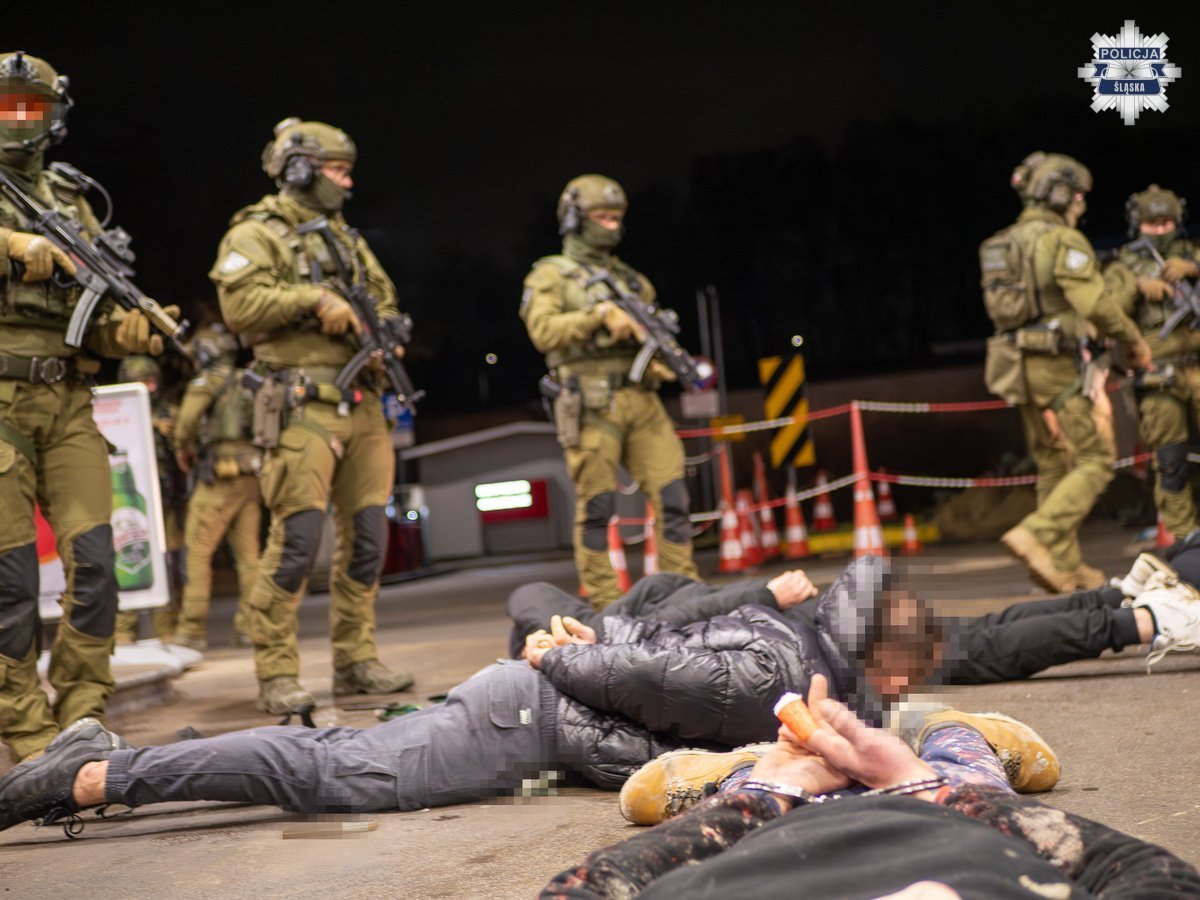Introduction
A martial law in a political public debate does not service as a historical event, but as a circumstantial trigger for certain emotions. alternatively of analyzing political, geopolitical and economical conditions, Poles receive speeches aimed solely at causing agitation. This way of shaping the debate on the state of war gives serious political gains – it polarises the political scene, consolidates supporters of certain views around it – a common awareness and common knowing of certain phenomena, but around common emotions. This is the cheapest way to build and keep a political background. Only that not necessarily honest towards Poles deceived by specified dishonest rhetoric.
On the margins of disputes publicised present in the media, little media facts are passing – if politicians are changing at all in speeches. Is it possible to ignore the state of the economy in 1981, the possible effects of the economical collapse in December 1981, the economical pressures of the USSR and the behaviour of Western creditors? Parallel to the economical collapse of the Polish People's Republic caused by the strikes, preparations were made for the possible intervention of the Warsaw Pact troops in the Polish People's Republic, in the event that the authorities decided on the Czechoslovak variant (1968) – or if there were riots and local uprisings, as in Hungary in 1956. The second situation could easy be ignited by the large demonstrations of Solidarity planned for 17.XII.1981, connected with the star march to Warsaw. The planned demonstrations could, as a consequence of provocations of extremist or average hooligans, end with events known to Poznań, Radom or the Coast – only that this time marches were to take place all over the country. What should be done in specified a situation – the reader should effort to decide for himself.
Before reading a text presenting the position of the National organization towards the State of War, we encourage the reader to familiarize himself with the movie presenting the political and economical background of those events:
Film "Behind the scenes of PRL – 20 – Double loop".
Video backup: Behind the scenes of PRL, section 32, Double Loop
National organization to martial law
Written by: Maciej Motas
Source: http://sol.myśmyspolska.pl
We print below a final fragment of a comprehensive draft entitled “National organization to the martial law on 13th December 1981 in Poland” by Maciej Motas, which was published in the first volume of the fresh publication of the continuous “Archive of National Democracy”. We callback these basic facts in the face of a complete misunderstanding of this event by the young generation referring to the national tradition.
The activists and politicians of the nation, despite a reasonably unequivocally negative attitude towards the country's regime, did not decide to condemn the martial law introduced on the night of 12 to 13 December 1981. Moreover, virtually all statements show a greater or lesser knowing for the usage of emergency measures by the communist authorities.
The statements and opinions cited above are surely not full uniform, they illustrate the differences that be in the national community and in the Party, mainly due to the relation to Solidarity. It is worth noting that this is not the full "Solidarity", seen as an authentic Catholic and national representation of society, has been the subject of criticism. Her blade was directed against a group of advisors from the NRA. All the enunciations besides expressed concern about the strategy of leadership of Solidarity and about which group in its womb would dominate the relation [1]. The deficiency of experience and preparation of union activists has frequently been explained, as explained, among another things, by the deficiency of a average political strategy that would enable the essential political skills to be acquired. Above all, however, the disastrous influences of the NRAs were shown.
It can be considered that the differences in the assessment of the activities of ‘Solidarity’ resulted from different degrees of emphasis on the function played by the NRAs in the relationship. While for J. Giertych the KOR was the dominant trend within the democratic opposition and by the prism of his activities he assessed the full phenomenon, as far as W. Wasiutyński, who besides perceived and did not underestimate the function of “curonsors”, “Solidarity” was almost the emanation of the national movement [2].
However, regardless of the differences in any of the statements cited, the function and merits of Lech Wałęsa, which were voiced with appreciation, emphasizing his political sense, authentic Catholicism and moderation in action, opposed to the confrontational and extremist attitude of the KOR activists [3]. Looking for historical analogys, Wałęsa was frequently combined with the leader of Polish peasants – Vincent Witos.
In all the texts presented, there is simply a large deal of concern about preventing an uncontrolled explosion, which, like nineteenth century national events, would bury for decades the chances of Poland improving its position [4]. Attention was besides paid to the global context of events in Poland, including, above all, Poland's place in the politics of 2 planet powers. It was stressed that both the USSR and the United States are implementing policies that are consistent with their own interests and from this position they measure the situation in Poland. The unstable situation in Poland, which was the prefield of the east bloc, was conducive to American politics, curious in establishing russian forces in Central east Europe at the expense of their engagement in the mediate East.
On the another hand, concerns were expressed that developments in Poland could contribute to the suppression of progressive standardisation, including the detention of the then ongoing disarmament process (the START programme aimed at reducing atomic arsenals). They warned against a situation where events in Poland would give impetus to the start of a fresh phase of the Cold War. The national environment powerfully criticized the United States' decision to introduce food sanctions against Poland. Almost all of the quoted publicists and national activists presented the country's position as very difficult, both for the rulers and for the solidarity side. The introduction of martial law in the reception of emigration nationalists was at worst a "minor evil", saving the country from specified interior danger (the threat of civilian war or "only" further anarchization of relations in the country) and external (the russian intervention by means of the Warsaw Pact forces).
However, no substance which of the scenarios was more real at the time, the opinion was expressed in most cases that Gen. Jaruzelski's decision was more dangerous. The anticipation of russian intervention, which was Moscow's reaction to the progressive destabilisation of the block wall, was considered to be almost certain [5]. As a major reason for the decision to introduce martial law, the majority of nationalists considered the confrontational course adopted at Gdańsk "Solidarity" Convention in September and October 1981 with a dense impact Address to east European Workers at the head [6]. The threat of a general strike announced by the union authorities on 17 December was to be a direct impulse.
All of the quoted representatives of the national camp agreed that the solution to Poland's problems at the time lies in the way of the social agreement proposed by the Church between the rulers and society. A gradual recovery before 13 December 1981 was besides requested, with the restoration of civilian rights and the decision to "revocation the suspension of Solidarity" at the head of the [7]. There were besides frequently opinions (W. Wasiutyński, L. R. Jasieńczyk Krajewski) punishing to see the decision of December 1981 in terms of the regime's actual resignation from the ideological facade of the state. From this perspective, martial law appeared to be an crucial origin in delegitimizing the authority of the ruling party.
In conclusion, it should besides be noted that the position expressed by emigration nationalists has been full correlated with the position of national communities in the country [8]. To a large extent, they are besides referred to by prof. Maciej Giertych at a farewell gathering of the Consultative Council at the president of the State Council: "After 13 December, the national Democrats recognized themselves by their attitude to martial law. He who supported him showed the ability to think geopolitically, to emergence above opposition to socialism"[9].
It appears besides justified to say that, despite the many differences in the assessment of the decision resulting in the introduction of martial law, which can symbolize the statements of Wojciech Wasiutyński, saying that "there has been no condemnation of the nation by the National Party", and the declaration quoted above by M. Giertych, the position of all nationalists was so characteristic of the full camp of national democratic realism erstwhile formulating assessments and the ability to emergence above ideological schemes. They surely do not give the intentions of the members of the emigration organization held for respective years under the home of Gen. W. Jaruzelski, on the next anniversary of 13 December, pickets co-organised by an organization wishing to be the heiress of the national formation from the sign of the National Party.
The introduction of martial law opened up opportunities for national environments to gain a wider impact on national realities. The rulers, in view of the partial delegitization of their power, had to trust on a wider political platform to service as the establishment of the Patriotic National Revival Movement with Jan Dobraczyński at the head, whose “concept... referred to the thought of folk fronts (national) and was an effort to make a national camp as a political base of power”[10]. However, this is already a subject for a separate study.
[1] Concerning the divisions in the relation that followed the Bydgoszcz crisis, the historian wrote: “In the womb of NSZZ Solidarność the first political division was drawn. any leaders with A. Star in the lead called for a tighter confrontation with power and announcement of a general strike. The part focused around L. Wałęsa sought an agreement and did not let the general strike to be proclaimed, see: A. Czubiński, “History of Poland 1864-2001”, Wrocław 2008, p. 308.
[2] It is worth noting that with the passage of time the attitude of Wasiutyński to "Solidarity" became increasingly critical, in the publication of Roman Wapiński's work on R. Dmowski, published in the late 1980s, he wrote: "The movement in the form of "Solidarity", (...) was undoubtedly an expression of national solidarity and spiritual traditionalism, but the traces of Dmowski's political thought in it were not, which badly weighed on his fate", W. Wasiutyński, "The Monography of Wapiński on Dmowski", "Think Poland", No. 1-2, 1-15. 01. 1989, p. 2.
[3] In a speech delivered at the conference on the 15th anniversary of the martial law, Wojciech Turek put the thought of an agreement with the authorities in the autumn of 1981 to face the communists, but besides – completely mistakenly – to measure the situation, not appreciating the power of the authorities, but overestimating its own capabilities, and, worst of all, falling into an emotional state, preventing Lech Wales from pursuing a rational policy towards the communists, see W. Turek, “Before coming on 13 December 1981”, “Think Poland”, No. 49-50, 5-12 December 2010, p. 10.
[4] See L. Mażewski, “Insurgent blackmail. From the Bar confederation to the martial law", Warsaw 2004; K. Pruszyński, “Margrabia Wielopolski”, Warsaw 1957; “In the name of what this victim? National Camp against the Warsaw Uprising", the choice and improvement of J. Engelgrad, M. Motas, Warsaw 2009.
[5] A number of contemporary opinions on the threat of russian military intervention were presented in the article: M. Motas, "Was the armed intervention of the russian Union possible in 1981?", "Think Poland", No. 31-32, 3-10. 08. 2008, pp. 18-19.
[6] 1 historian describes the convention as follows: “The convention was transformed into a immense political-propagand event with a definite antisocial content. A number of political resolutions were adopted, which agreed with the government and political alliances of the Polish People's Republic. The second part of the reunion was held in early October 1981. The statements of opposition leaders became increasingly clear, declared, anti-socialist. Prof. Edward Lipiński, acting on behalf of the KSS KOR, stated that the organisation had dissolved, recognising that its functions had been taken over by NSZZ «Solidarity». The convention adopted a resolution expressing its thanks to the erstwhile members and co-workers of the NRA, as they deserved, in the sense of its participants, to prepare the ground for the action of Solidarity. In this way, NSZZ «Solidarity» admitted to its KOR-bred genesis and considered itself a follower of this organization", see A. Czubiński, “The latest past of Poland 1914-1983”, Warsaw 1987, p. 405.
[7] A. Dargas, “The State of War and What Next?”, “Think Poland”, No. 1-2, 1-15. 01. 1982, p. 1.
[8] any nationalists in the country had long before predicted the anticipation of a state of emergency. Almost after the August 1980 events, Jan Matłachowski was to express an opinion expressing surprise at the deficiency of a strong consequence from the authorities. Written account of Jerzy Marian Zieliński in 2011 (in the possession of the author).
[9] Quoted for: M. Kosman, ‘General's fate...’, p. 130.
[10] A. Skrzypek, "The Mechanisms of Customerism Polish-Soviet Relations 1965-1989", Pultusk-Warsaw 2008, p. 293.

